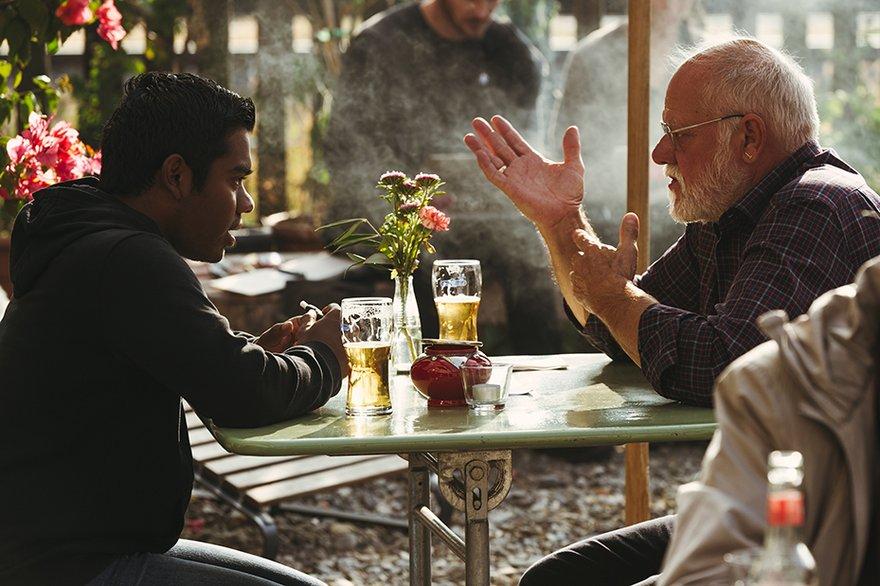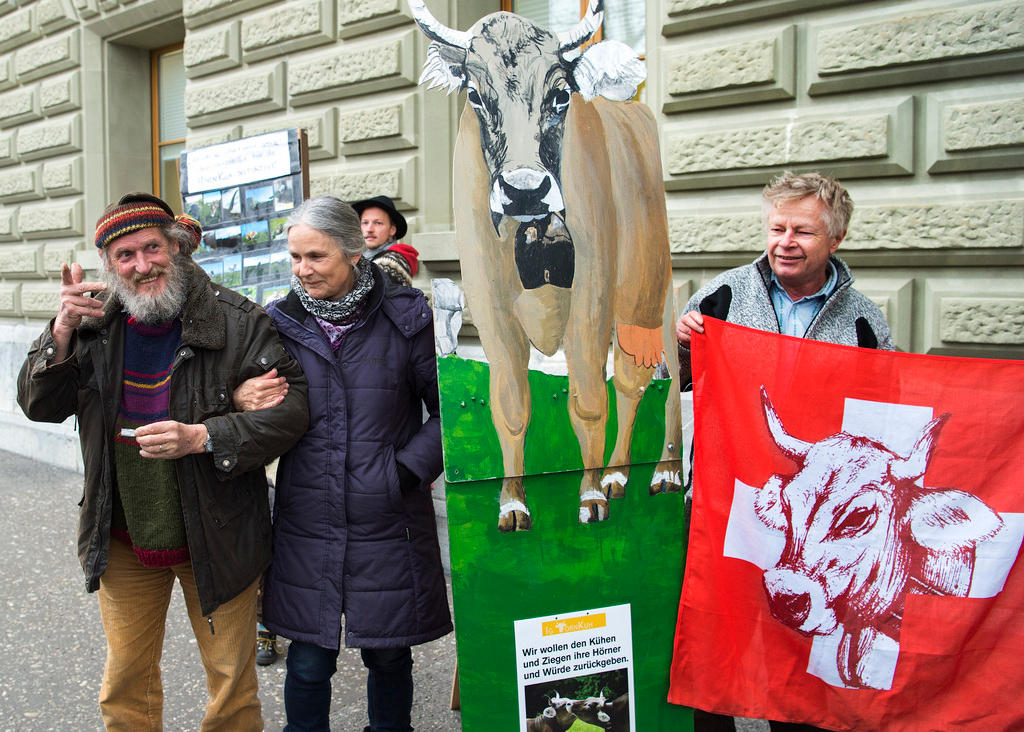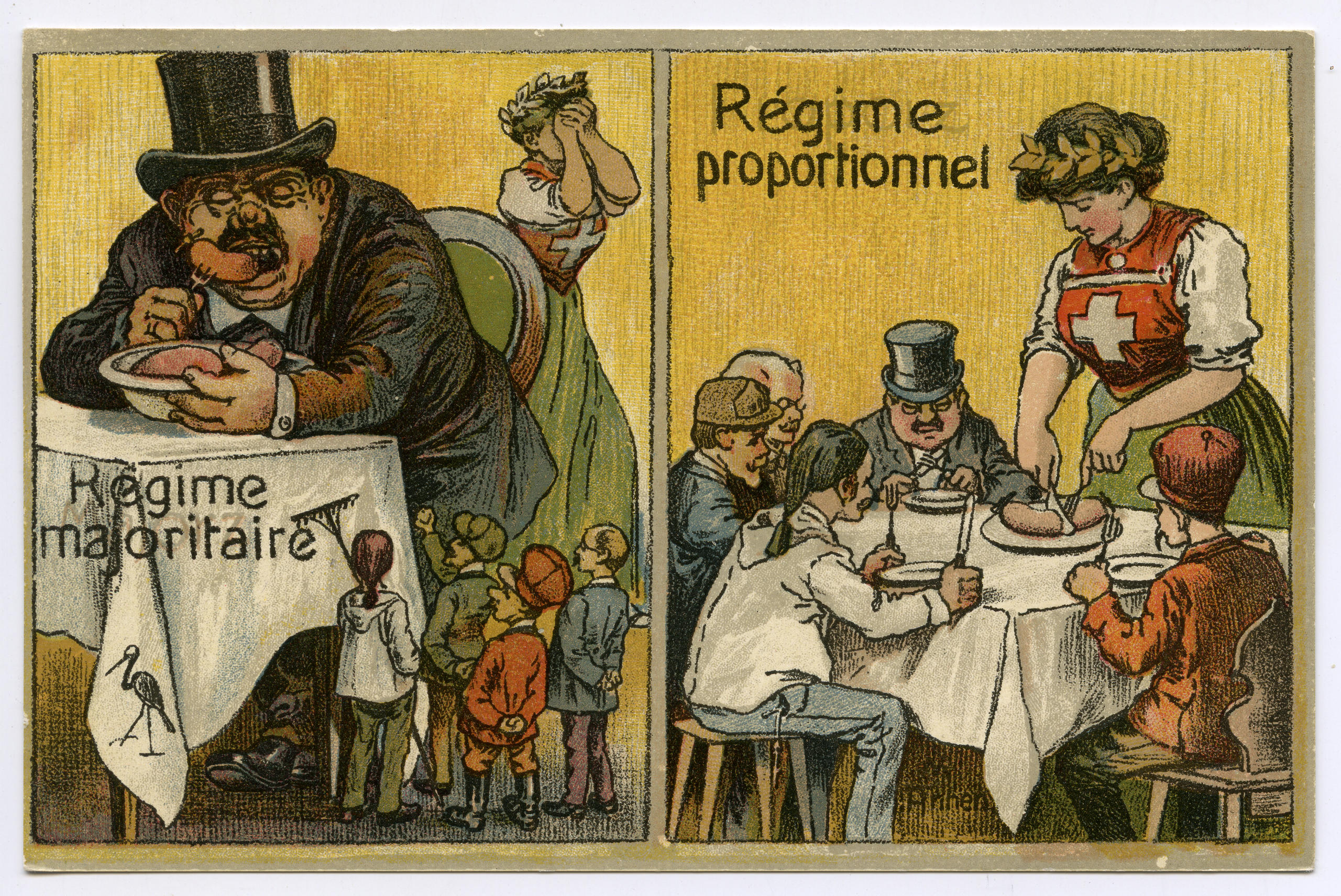A social experiment gets opposites talking

How often do you talk to someone who has completely different views? Switzerland has ventured into a social experiment this month: People with different opinions met on blind dates. An algorithm chose the pairs.
In Switzerland too, many people don’t leave their comfort zone. Social media, with its”filter bubbles”, reinforces this phenomenon. Dialogue with people who have different opinions are reduced to talk shows and polarised media debates. Often the personal exchange of ideas dwindles.
Common ground to be found?
As part of the “Die Schweiz spricht” (“Switzerland speaks”) project, various Swiss media have called on volunteers to meet in private for a discussion on controversial issues. And to thereby find out whether, despite different attitudes, dialogue – even find common ground – is possible.
The project was organised by Swiss public radio and television SRFExternal link as well as the private newspapers and media companies ZeitExternal link, watsonExternal link, Tages-AnzeigerExternal link, BundExternal link, Berner ZeitungExternal link, Le Matin DimancheExternal link, 24heuresExternal link, Tribune de GenèveExternal link, RepublikExternal link and WOZExternal link.
More than 4,000 people volunteered. An algorithm paired two people with completely different opinions on fundamental issues, such as a quota for women in management or child adoption for homosexual couples, taking in more refugees or relations with the European Union.
Who volunteered for the project? With an average age of 47 years, 15% were over 65 years old, 3% under 19 years old. Almost three quarters of the participants were men. Most of the participants came from the densely populated urban areas of German-speaking Switzerland, especially from the city of Zurich.
And so the unlikely couples – 1,400 people – finally met on Sunday, October 21. A sunny afternoon spent over coffee and walks, at bars or on the lakeshore. Many of the participants noticed that they often had more in common than expected.
“Opinions diverged in the details”
Such as Vangelis, a 22-year-old app developer, and Lea, 18 years old and just out of school. “There were moments when I realised we were actually not so far apart. Our opinions mainly diverged on the details,” he said about her. On paper, they couldn’t have been more mismatched.
Other dates didn’t work out so well. “Not all people really want to talk to each other,” one participant said, summarising their meeting.
Generational gap
Some issues split generations. For example, the acceptance of adoption by homosexual couples. Forty per cent of people aged 65 and over were opposed to it – and only 12% of teenagers. There were also different attitudes between urban and rural dwellers.
It is not yet clear if there will be a second edition. However, the first run showed one thing: that democracy involves more than ticking a box on a ballot.

In compliance with the JTI standards
More: SWI swissinfo.ch certified by the Journalism Trust Initiative






You can find an overview of ongoing debates with our journalists here. Please join us!
If you want to start a conversation about a topic raised in this article or want to report factual errors, email us at english@swissinfo.ch.